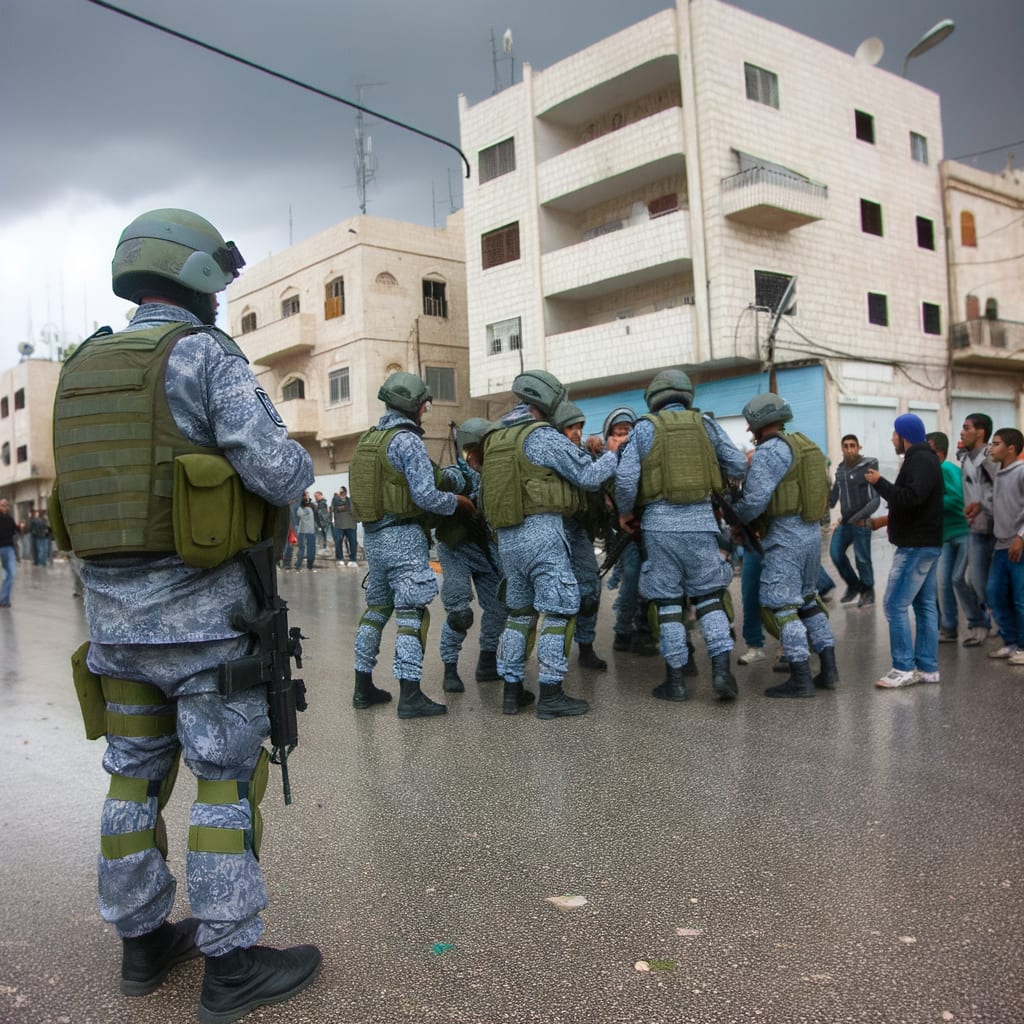Tensions Escalate in Israeli-Palestinian Conflict Amid Hostage Negotiations and Violent Protests
In the midst of ongoing Israeli-Palestinian conflict, recent reports indicate a potential 60-day truce and the release of 10 hostages by the United States. However, the situation remains fraught with tension as violence continues throughout the region, including the killing of two Palestinian youths by Israeli forces, and the expansion of Israeli settlements in the West Bank.
Background and Context
The Israeli-Palestinian conflict has been intensifying, marked by a surge in violence, settlement activities, and political maneuvering. This includes the killing of a 14-year-old Palestinian American, Amer Rabee, and a 20-year-old Palestinian, Jassem Ibrahim al-Sadda, by Israeli forces in the West Bank. The latter incident was particularly contentious, with reports suggesting al-Sadda was shot while asleep in his bed.
Meanwhile, Israeli settlement activities in the West Bank have continued to escalate. The Israeli security cabinet reportedly approved the establishment of 22 new settlements, a move that has been condemned by Palestinians and international observers alike. Nabil Abu Rudeineh, a Palestinian spokesman, emphasized that these activities are likely to cause further escalation and called for an end to Israeli aggression.
Key Developments
The situation has been further complicated by a series of protests and confrontations. Hundreds of Israeli settlers stormed the Al-Aqsa Mosque and the Old City of Jerusalem, sparking violence and provocation. The event, known as the Flag March,
was marked by racially charged chants and was widely criticized.
Similarly, in Jerusalem, a state-funded march through the Muslim quarter of the Old City saw thousands of Israelis chanting racist slogans. The annual event, which celebrates Israel's capture and occupation of East Jerusalem and its holy sites in 1967, was shut down due to escalating tensions.
Internationally, pro-Palestinian activism has seen a surge. At Cheikh Anta Diop University in Senegal, students protested the presence of Israeli Ambassador Yuval Waks, forcing him to leave the campus. In Ireland, activists have embraced the term Paddystinian
as a badge of honour in their campaign against the war in Gaza.
Implications and Reactions
The ongoing conflict and its escalation have drawn a myriad of reactions, both domestically and globally. The United Arab Emirates issued a rare warning to Israel, expressing concern over the unchecked violence. France and Indonesia have voiced support for a two-state solution to the Israel-Palestine conflict, with Indonesian President Prabowo Subianto stating readiness to recognize Israel if Palestine gains recognition.
However, Israeli authorities have warned that recognition of Palestine by Europe could be met with the annexation of the West Bank. Furthermore, some right-wing Jewish groups and conservative lawmakers in the U.S. have called for a harder crackdown on pro-Palestinian activists following an attack by a gunman shouting 'Free Palestine'.
Current Status
As the situation continues to unfold, the potential for a 60-day truce and the release of 10 hostages offers a glimmer of hope. Yet, the ongoing violence, settlement activities, and the heated political climate continue to fuel the conflict, leaving its resolution uncertain.

